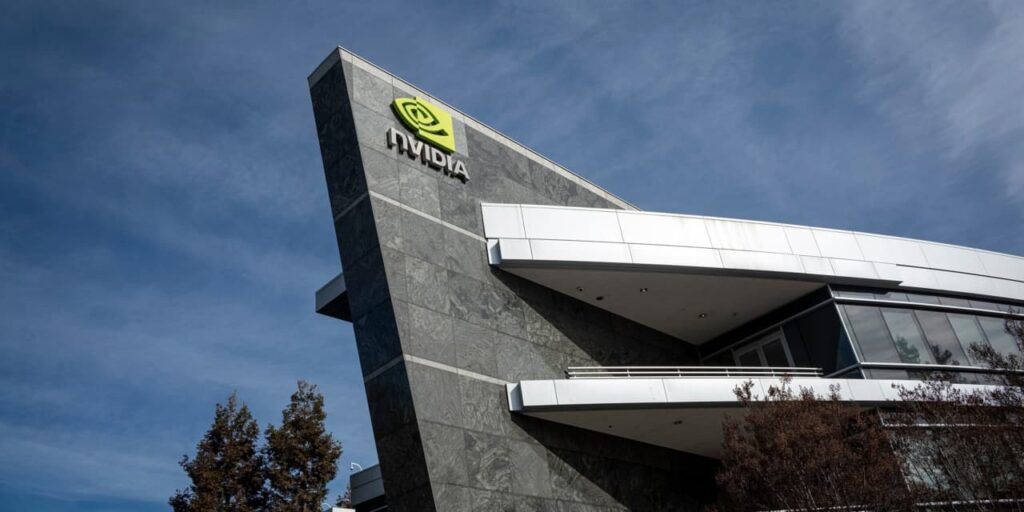Nvidia stockholders didn’t get exactly the Thanksgiving boost they wanted. A renewed focus on the chip maker’s difficulties in exporting hardware to China has knocked the stock back but it could benefit if investors take a broader view of its technology.
Nvidia
(ticker: NVDA) shares were up 0.4% at $479.54 in early trading on Monday. Having briefly risen above $500 in the run up to its results announcement last week, misgivings over an expected fall in sales to China due to U.S. regulations hit the stock.
The disappointment was compounded by a Reuters report that the chip maker was delaying until the first quarter of next year the launch of its new H20 artificial-intelligence chip destined for China.
It’s clear China is a topic Nvidia won’t be able to overcome swiftly. However, the company has reiterated several times that it expects strong demand in other regions to fully offset the projected Chinese sales hit. It should just be a matter of time before it can show those regional results, while it will also eventually solve the manufacturing issues that have caused the H20 delay.
Meanwhile, there are other catalysts that should come into play. Further details on the next-generation B100 graphics processing unit, due for release next year, should shore up confidence in its leadership over rivals
Advanced Micro Devices
(AMD) and
Intel
(INTC).
So far, there have only been sneak peeks of the B100’s capacity on product road-map presentations. Analysts are looking for signs of technological advances, which could include using
Taiwan Semiconductor Manufacturing’s
(TSM) 3-nanometer manufacturing process, as well as adopting ‘chiplet’ stacking technology that combines multiple small chips.
Nvidia could also look to focus attention on its broader product portfolio around AI. Last week it said its new class of Ethernet networking technologies, designed to speed up generative AI workloads, would be adopted by
Dell Technologies
(DELL),
Hewlett Packard Enterprise
(HPE), and
Lenovo
(LNVGY).
“The onset of generative AI model training and inferencing brought forth a new data center architecture, parallel computing, which rethinks the way data centers are designed and built…Nvidia remains the clear near-term winner given its end-to-end, full-stack AI offering,” wrote Stifel analyst Matthew Sheerin.
Stifel has a Buy rating and $665 target price on Nvidia stock.
Write to Adam Clark at adam.clark@barrons.com
Read the full article here

